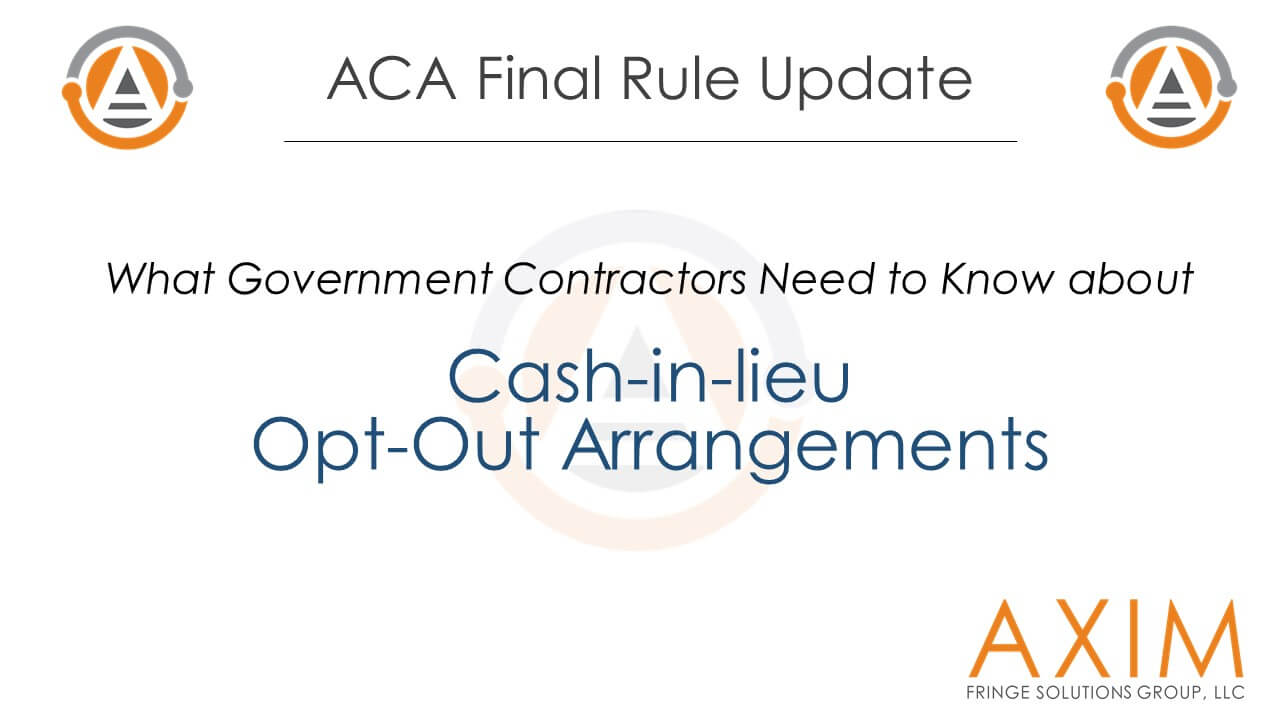
On Dec 14th, the IRS released final rules shedding light on earlier ACA provisions (July 2016). However, it excludes updated language on the complex and controversial “opt-out arrangement” provision, leaving in place earlier guidance (Dec. 2015).
What employers need to know about opt-out payments… as it currently stands
- Unconditional Opt-Out Payments – does not require an employee to provide any proof of other coverage. In doing so, it’s treated as a cost to employees for ACA “affordability” calculations.
- For example, an employee’s premium contribution is $200 and they’re offered $200 to decline coverage. For “affordability” purposes, the cash received for “opting-out” is added to each employee’s premium totaling $400. This can push premiums over the affordability limit leading to ACA penalties.
- “Reasonable evidence” – employee’s own certification that their “tax family” has or will have minimal essential coverage under the ACA.
- Conditional Opt-Out Payments – requires an employee who opts-out to provide “reasonable evidence” of minimal health coverage for themselves and their family.
- Unlike unconditional opt-out payments, conditional opt-out payments DO NOT count towards the affordability calculation.
“Cash-in-lieu” opt-outs & federal contractors
- Cash in lieu arrangements can be either unconditional or conditional. Besides the ACA impact (described above) and its known impact on contract margin and tax burden, offering “cash-in-lieu” also has negative ramifications on benefits costs.
How cash-in-lieu drives up healthcare costs
- Offering cash-in-lieu to those who waive coverage incentivizes healthy employees to find coverage elsewhere. Ultimately leaving high utilizers (& anyone else on the plan) with higher renewal rates.
- As renewal rates increase and more healthy employees opt out of coverage, it begins a domino effect sending utilization/renewal costs out of control.
- Reduces affordability and choice for those that truly need/utilize their health plan.
- We recommend eliminating cash-in-lieu in the long-term, as well as engaging employees through appropriate channels/initiatives to ensure accountability and optimal performance of the health plan.
What impact will the new Presidential administration have on the ACA?
- Right now there is only speculation on how the ACA will change in 2017. It’s uncertain how soon or how much of it will be affected. Rules that are already in effect can only be changed through notice and comment rulemaking which can be a lengthy process.
- Employers should still make sure their opt-out arrangements are set up to avoid ACA penalties. If you have questions about cash-in-lieu opt-out arrangements, please don’t hesitate to open a chat or email us.







